Claudia Viles for many years collected cash payments of town excise taxes in her husband’s construction garage. She used a typewriter and an adding machine, only starting to use a computer in 2012; and even then, it didn’t have the proper software to track money accurately, and she resisted learning new programs.
No one ever checked to see if the money she was taking in matched what she was depositing into town accounts.
She dictated her own salary and hours.
When the former Anson Town Clerk was convicted Wednesday of stealing $500,948 in excise tax money between 2009 and 2014, Assistant Attorney General Leanne Robbin said she was “a fox guarding the henhouse.”
While the amount is one of the highest municipal embezzlement figures in state history, the circumstances that made it easy for Viles to steal the money aren’t unique to Anson, or even town governments, financial and law enforcement officials said this week.
Many small towns — as well as businesses and organizations — don’t have the necessary oversight and technology — or the know-how to use the technology they do have — to keep it from happening.
“It amazes me how often a single employee has control over hundreds of thousands of dollars with no checks and balances,” said Maine Department of Public Safety spokesman Steve McCausland, who said such cases are reported among government, businesses and charitable organizations. “It has occurred far too many times in the state, and this case in Anson is just the latest.”
SMALL TOWNS, BIG MONEY
After Viles’ trial, Robbin said the amount of cash Viles took puts her “in a league of her own.”
Robbin said authorities also believe Viles was taking money long before 2009 — the earliest year for which she was prosecuted. The expense associated with audits and uncertainty about whether the money ever would be recovered have prevented town officials from looking further into the past.
In 1997, Fort Kent Town Manager Marilyn Deschaine committed suicide after leaving two notes admitting she had embezzled $508,154 in excise taxes from the Aroostook County town. The case was never prosecuted. The town recovered some of the money in a civil lawsuit against Deschaine’s estate and an insurance payment.
Also in 1997, Lisa Paine, a Madison town clerk, was convicted of embezzling about $255,000 in excise taxes.
Doris Reed, a town clerk in Chelsea, was convicted of stealing about $250,000 in excise tax money from 1988 to 1992.
In a wider-ranging case, Bobby Newell, the governor of Indian Township, a Pasamaquoddy reservation, was convicted in federal court in 2008 on 29 counts ranging from conspiring to defraud the United States, misapplication of federal funds, and fraud and lying to federal agencies in association with $1.7 million in misappropriated money.
Such cases are rare, said Eric Conrad, a spokesman for the Maine Municipal Association. He said that among the 13,000 municipal officials and employees in Maine, such examples are few and far between.
Preliminary figures show that in 2015 there were 46 embezzlement arrests made in Maine — across both public and private sectors — down from 78 in 2014, according to the Department of Public Safety. The department does not keep statistics specifically on municipal theft or embezzlements.
McCausland, the Department of Public Safety spokesman, did not have an explanation for the fact that embezzlement arrests were higher in 2014 than in other recent years — there were 57 in 2012 and 43 in 2013.
The attorney general’s office also does not track instances of embezzlement or theft among municipalities, but Robbin said, “We do hear about them.”
Last month, Julie Smith, a clerk in the Somerset County District Attorney’s Office, pleaded guilty to embezzling $91,345 in fees paid to the district attorney’s office; but Robbin, who also prosecuted that case, said it is not indicative of a trend.
“In Maine generally there seems like there was an increase in embezzlements once the recession hit in 2008,” Robbin said. “I think it may be that when money is free-flowing, it’s easy to cover up; but when money gets tighter, it’s easier to miss the funds.”
In 2014, for example, a Newport woman, Jamie Meservey, was caught stealing $20,000 from the town’s recreation program after Town Council members noted that some checks had bounced from the town’s account.
“If that check hadn’t bounced, they might have never known,” Robbin said.
There’s no easy explanation for what leads someone to steal thousands of dollars, but it sometimes starts with a personal or family problem, according to Robbin. She said she doesn’t know what may have triggered Viles’ thefts, which she thinks went on for years, based on the consistency in amounts of excise taxes collected during her tenure as tax collector.
SMALL TOWNS, FEW TOOLS
Embezzlement and fraud occurs across a spectrum of sizes and types of government and business; but in small towns, a lack of training and resources could increase the likelihood of such a scheme taking place, according to Robbin and other experts.
“It happens everywhere, but small towns also have limited resources and a lot of the same people doing functions that aren’t of best practice,” said Ron Smith, a managing partner and certified fraud expert at RHR Smith & Co., an accounting and auditing firm in Buxton. “They often may not have enough other bodies around for checks and balances.”
Conrad, of the Maine Municipal Association, said it’s unfair to generalize about whether there is a correlation between the size of a community and the likelihood of poor bookkeeping.
“In this computer age, we would submit it’s harder (to steal) than it used to be because in the 1930s, money came in cigar boxes and was kept in the treasurer’s kitchen drawer,” Conrad said. “That’s not really the way town government is run anymore.”
But witness testimony and arguments by both Viles’ defense attorney and Robbin during her trial pointed to a lack of technological advances and seemingly outdated government practices in Anson that either made it easy for Viles — or someone else — to steal.
Until about 2012, Viles used a manual typewriter rather than a computer to process motor vehicle registrations, according to former Anson Administrative Assistant Robert Worthley.
After Viles was given a computer, it didn’t have some of the programs that would allow excise tax receipts to be processed and reconciled digitally, and it wasn’t until 2014 that the final components of her job could be done on a computer, selectmen Chairman Arnold Luce said during the trial.
“The problem in this case was what happened to the money in the weeks and months between when it came in and when it was deposited,” said Viles’ attorney, Walter McKee, during the trial. “Was it super-secured and locked in a vault? No, it was in a file cabinet in a town office that, like a lot of town offices, doesn’t have a lot of security.”
Worthley also testified that for years Viles collected taxes in her husband’s construction garage. “The idea that you’d have somebody collecting large amounts of money out of their home for the municipality because that’s what they choose to do, it’s pretty amazing,” Robbin said.
Viles also manipulated adding machine tapes, a key component in covering up what she stole. The town’s auditor, Richard Emerson, testified at trial that on older and lesser quality adding machines, numbers could be entered and then the machine could be turned off and a total other than what the numbers were worth could be entered. That allowed Viles to list each transaction on her receipts, but come up with a total that was not accurate, the attorney general’s office said.
Town administrators signed off on Viles’ numbers without ever checking them until September 2014, when Administrative Assistant Triss Smith “knew there was a better way,” according to Robbin, and introduced a software program that brought the theft to a screeching halt.
Computerization, she said, was something Viles resisted, saying she wasn’t good at it, but was also something that made her more accountable and ultimately stopped the theft.
Luce and selectmen Vice Chairwoman Brenda Garland did not respond to calls seeking comment Friday afternoon. Selectman John Bryant declined to comment, citing pending legal issues that the town is still dealing with in connection with the case.
EXCISE TAXES VULNERABLE
The case unfairly gives a bad name to town government employees, according to Conrad, who said residents can take comfort in knowing that the misappropriation of government money is more likely to be aired in the public than private embezzlement cases.
“Everybody knows it’s public money, public trust at stake; and if somebody is caught, the par for the course is there’s a prosecution, especially if it’s a sizeable amount of money,” he said.
There are 491 municipalities in Maine, and most of them are technologically up-to-date, Conrad said, including 350 that have websites.
“That’s not really financial software, I know; but if they have websites, they’re probably pretty computer literate,” he said.
But Smith, whose firm audits 125 to 150 municipalities a year in Maine, said the lack of technology in Maine towns is a problem that also extends to other states in New England.
“I’m not going to sit here and tell you something I don’t think is professionally accurate,” he said. “I think (lack of technology) is a common thing. Some of the people even have the technology and don’t know how to use it, and that’s part of the problem.”
Viles also was charged with collecting property taxes from the town, but officials do not think she stole any; she stole only excise taxes, a local tax that is paid on car registrations. Along with property taxes, it is a major source of revenue in most municipalities.
Several large cases of municipal embezzlement over the years have included theft of excise tax money, including the Deschaine case in Fort Kent, the Reed case in Chelsea, and the Paine case in Madison.
Unlike property taxes, for which towns can calculate ahead of time how much they should be collecting each year, the excise tax number is harder to figure out, and that makes the money easier to steal, according to Robbin.
“With excise tax, you don’t know, because people are trading cars, buying cars, getting rid of cars,” she said. “The real estate is going to be there, but the cars may come and go. That enabled her. Nobody knew what the total should be so it was the easier source to take.”
Emerson, who has conducted audits for the town since 1993, also said that motor vehicle registration forms — the underlying paperwork on which Viles’ numbers were based — are outside the scope of a regular audit.
“He’s 100 percent right,” Smith said, adding that while the standards applied by auditors vary across the state, they should not be relied on as a fail-safe mechanism for detecting fraud and abuse.
“If you’re relying on the auditor to catch fraud, you’re relying on the wrong person,” Smith said. “You really need to be able to rely on people internally.”
OVERSIGHT, ACCOUNTABILITY
When it comes to preventing municipal theft, experts recommend a couple of things.
First, a daily cash receipting program such as the TRIO program that Anson now uses, and checks and balances — having more than one person look over receipts and other documents — are important.
Appointing, rather than electing, town employees also can provide more oversight, according to Robbin and Smith, a change that Anson adopted last year for its tax collector and that more towns across Maine are moving toward.
The Maine Municipal Association also has noticed a trend toward an increasing number of municipalities changing elected positions to appointed in recent years.
“I think running municipal government is a lot more complicated than it once was,” Conrad said. “The state and federal government have backed off some things they used to do. They give towns and cities less money, so the pressure on local government is huge. Not that elected officials aren’t professional, but there’s more pressure to get as many qualified, professional people in as many positions as possible.”
In Augusta, Deputy Finance Director Tracy Roy said the city has a financial audit committee that purposely excludes city workers and is made up of two City Council members, two school board members and one resident, who meet with the city’s auditors annually to bring up concerns that fall outside the realm of a typical annual audit.
“That’s the place where if there’s something that they feel needs more attention, it can be brought up,” she said.
Smith said he also recommends that municipalities have their boards of selectmen sit down with municipal auditors at least once a year to talk to them about concerns. In Anson, town auditor Richard Emerson, of Purdy Powers & Co., said he had sent letters to the town on numerous occasions with recommendations for better practices, but they largely went unheeded.
Municipalities in Maine are required to conduct annual audits that include a review of financial statements as well as internal practices for handling paperwork, but even that is not a fail-safe. In the case of Anson, town officials have said that Viles gave the auditor false information.
Smith pointed out that even with the right technology in place, theft and embezzlement are not 100 percent preventable.
“The real problem here is called willful manipulation,” Smith said. “That’s what happened in Anson and that’s what happens 10 out of 10 times when you read about it in the paper. Somebody has willfully made a choice to do what’s happened. That means it doesn’t matter if you have the best controls in place at all. When somebody is that willing, they’re going to find a way to do it.”
Rachel Ohm — 612-2368
Twitter: @rachel_ohm
Send questions/comments to the editors.



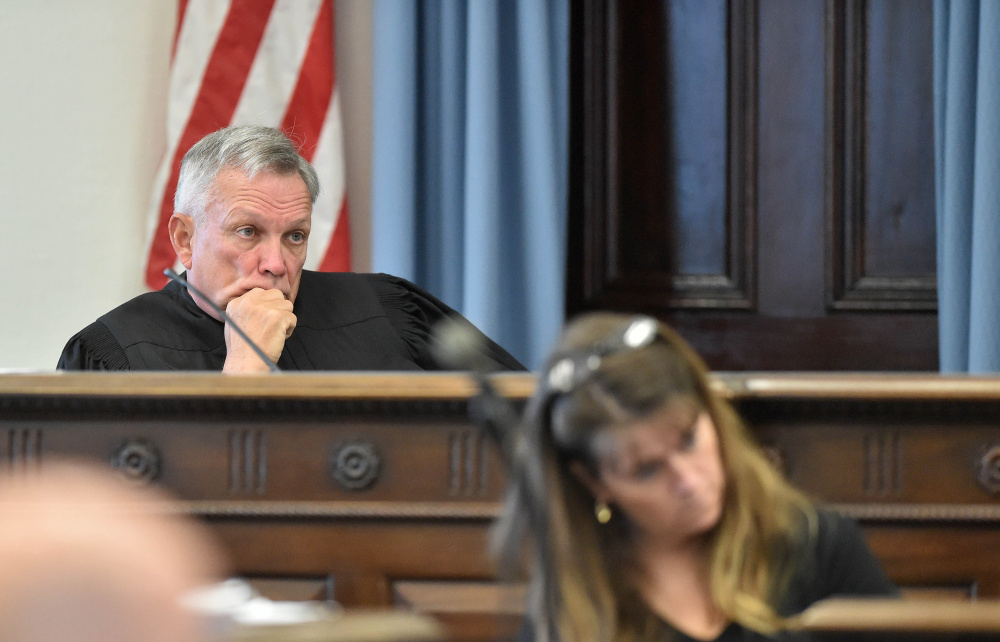
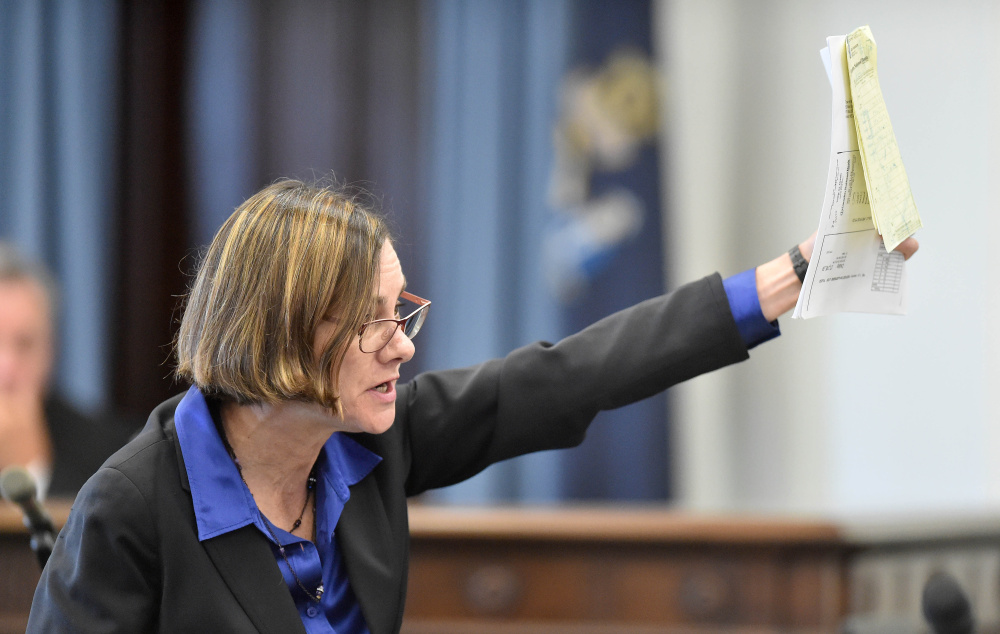
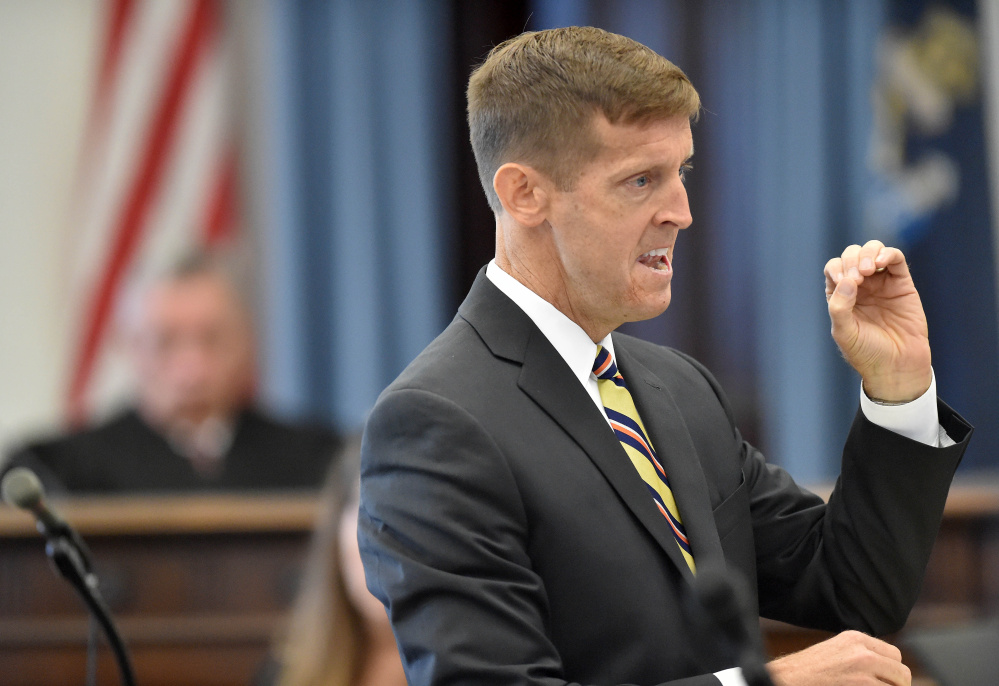
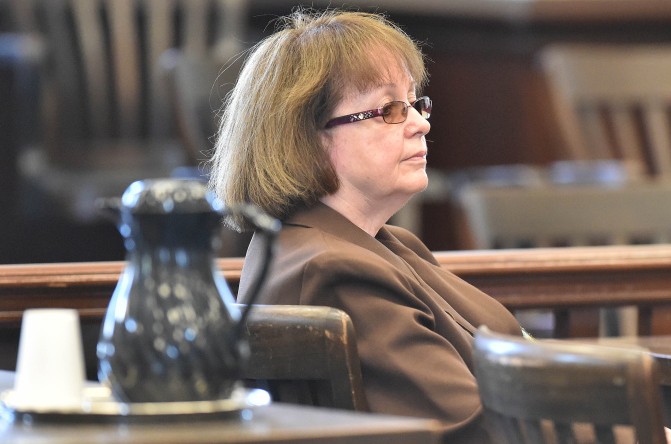
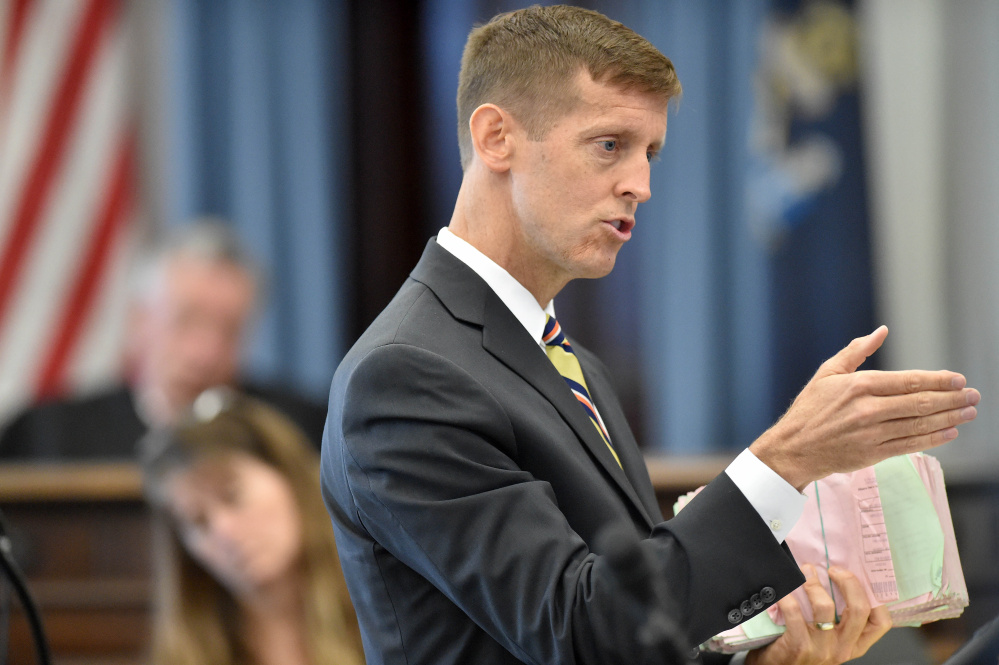
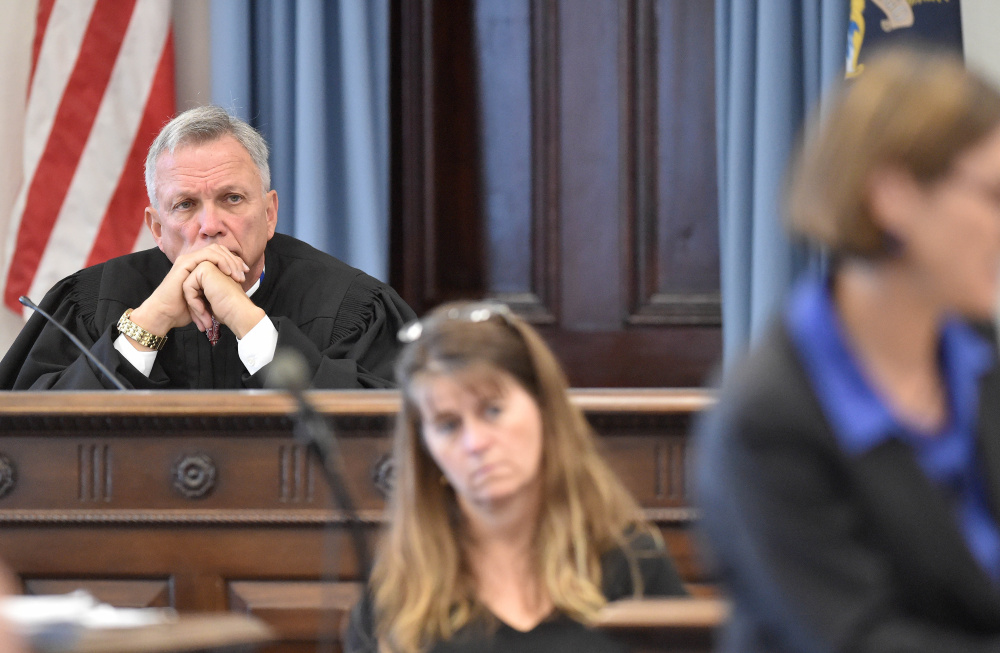





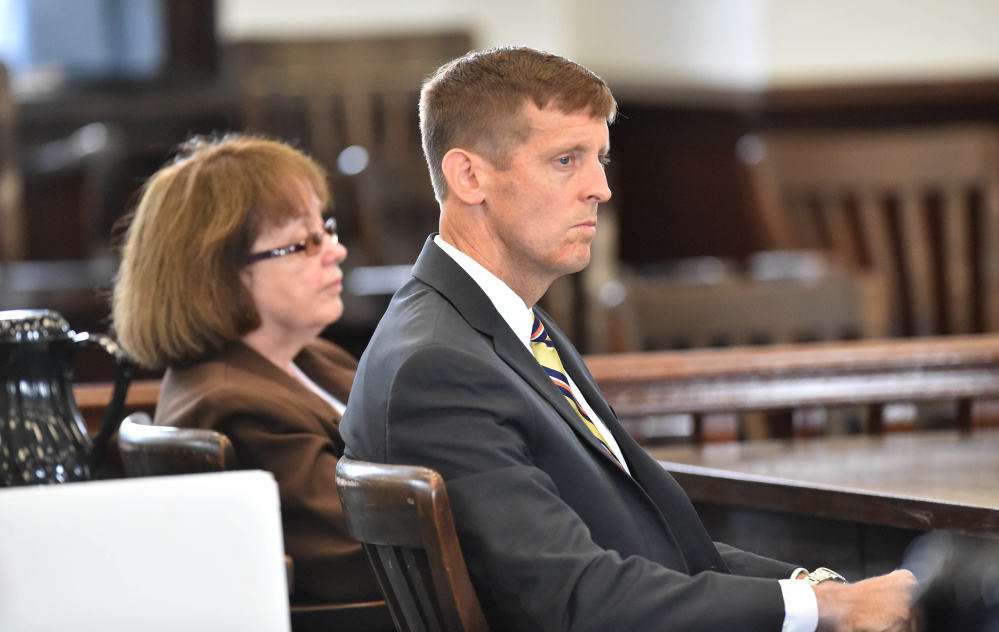
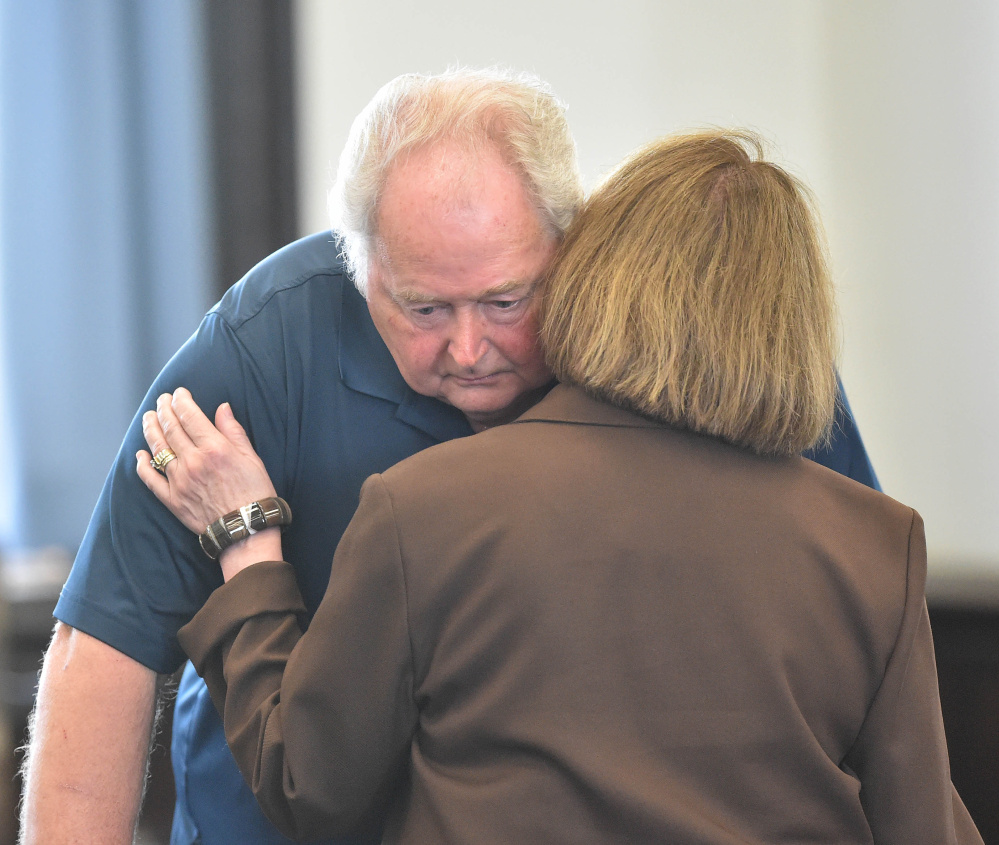



Comments are no longer available on this story